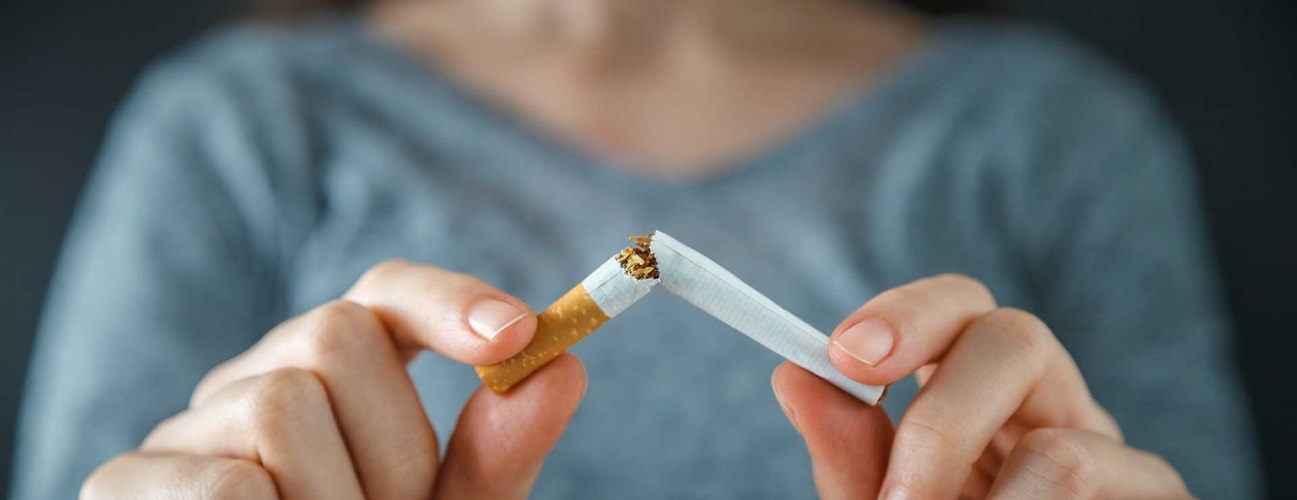The Number One Way to Reduce Heart Risk
Among the behaviors within your control, not smoking is by far the most critical single action you can take to prevent heart disease, heart attack and stroke. Quitting can be tough though. “Nicotine is a chemically addictive substance, and smoking is also mentally addictive because of the habits we associate with it,” says Johns Hopkins cardiologist Parag Joshi, M.D.
But there are smart strategies that can help you join the legions of others who have successfully broken the habit.
Decide to quit smoking.
“You’ve got to be ready to quit to have success,” Joshi says. “There are many strategies to help you quit, but first you have to make up your mind that you really want to do it”—as thousands have before you.
Picture your smoking-cessation motivations.
Many people decide to quit smoking after a scary event, such as a heart attack, gives them a wake-up call, Joshi says. Imagine some concrete goals: Avoiding another stroke? Being around for a grandchild’s birth? Being able to walk easily again without leg pains? Being able to breathe easier?
Tap into free resources.
Start with a call to 800-QUIT-NOW, a toll-free service staffed by smoking-cessation counselors in your state. Or go to smokefree.gov to discover options, including quit-smoking programs aimed at veterans and women, which are also available in Spanish. SmokefreeTXT is a free text messaging service you can also sign up for on the site.
Pick a quit date.
Joshi prefers to urge his patients to focus on a special date, sometime within the next month or so, such as a birthday or anniversary. This target lets you taper off and prepare mentally, rather than quitting cold turkey (although, he points out, that can also work for some individuals).
Tell family and friends.
They can encourage you and cheer you on and not smoke around you to help you avoid temptation, Joshi says. Even better: When your partner or a friend quits at the same time, you can reinforce each other.
Get rid of reminders of your smoking life.
Remove cigarettes and ashtrays from your home and office. Have your car cleaned and deodorized. Spend time in different places, rather than in old haunts where there’s other people smoking.
Remove smoking triggers.
Think about when you smoke: “Do you wake up and have a cigarette with your coffee and newspaper, for example, or smoke after meals?” asks Joshi. “Shake up your routines, like exercising in the morning, so you’re less tempted to smoke.”
Create substitute habits.
For those stressful moments when you’d ordinarily reach for a cigarette, look for new ways to get relief, such as meditation or deep breathing. Exercise is a smart stress-reliever with the added benefit of making you want to smoke less. (Just get your doctor’s OK before starting any new vigorous exercise program.)
Consider stop-smoking aids.
“Many of my patients have had success with nicotine replacements like patches and gum, or with medications to help them quit,” Joshi says.
Ask your doctor for help.
“A lot of people teeter-totter when it comes to quitting and just need help,” Joshi says. “There’s no shame in asking for help, and it’s never too late. I’ve had patients quit even in their 60s and 70s.” (That said, quitting when you’re younger—or never starting to begin with—is best.)
How can I avoid gaining weight when I quit smoking?
“This is a very real issue for many of my patients,” says Johns Hopkins cardiologist Parag Joshi, M.D. “It’s common to gain 5 to 10 pounds when you quit smoking because you may eat more instead of reaching for a cigarette.” What helps: Make a bona fide commitment to exercise and healthy eating, two other lifestyle habits that are proven to keep weight down as well as markedly improve heart health.
“When you stop smoking, you’ll probably find that your capacity for exercise increases,” Joshi says. You’ll have more lung power and more energy, for example. Being more physically active tends, in turn, to motivate people to eat better. Together, these behaviors can counter weight gain.
“It’s also important to realize that in terms of your health, gaining 5 to 10 pounds may be a small amount, with far fewer harmful effects than continuing to smoke,” Joshi says.






